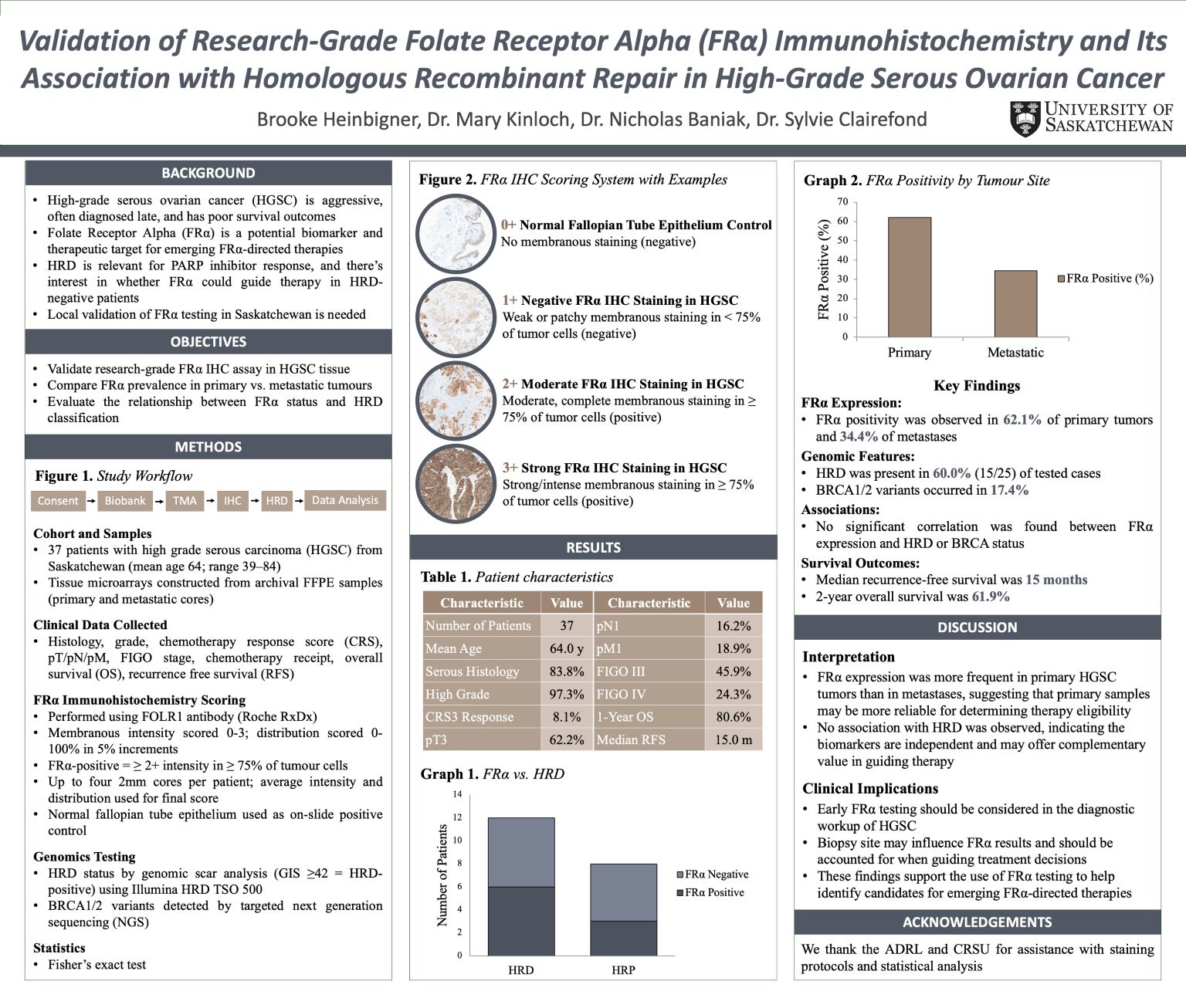
Validation of Research-Grade Folate Receptor Alpha (FRα) Immunohistochemistry and Its Association with Homologous Recombinant Repair in High Grade Serous Ovarian Cancer
Brooke Heinbigner
Background: High-grade serous ovarian cancer (HGSC) is the most common ovarian cancer subtype, characterized by advanced-stage diagnosis and high mortality. Folate Receptor Alpha (FRα) is overexpressed in a subset of HGSC and represents a therapeutic target for emerging FRα-directed therapies. Local validation of FRα prevalence and its relationship to homologous recombination repair (HRR) status is important to guide biomarker-driven treatment strategies.
Methods: Archival specimens from 37 HGSC patients in Saskatchewan were assembled into tissue microarrays containing primary (n = 29) and metastatic (n = 32) cores. FRα immunohistochemistry was performed with a research-grade antibody and scored by intensity (0–3+) and distribution, with ≥2+ staining in ≥75% of tumor cells defined as positive. Genomic testing (n = 25) assessed homologous recombination deficiency (HRD; genomic instability score ≥ 42) and BRCA1/2 variants. Clinical and outcome data were analyzed with Fisher’s exact and log-rank tests.
Results: FRα positivity was observed in 62.1% of primary tumors and 34.4% of metastases. HRD was present in 60.0% of tested cases; BRCA1/2 variants occurred in 17.4%. Median recurrence-free survival was 15 months, and two-year overall survival was 61.9%. No significant association was found between FRα expression and HRD or BRCA status.
Conclusions: FRα is expressed in a substantial proportion of HGSC, particularly in primary tumors, supporting its role in identifying candidates for FRα-targeted therapy. Reduced expression in metastases highlights the importance of testing primary specimens, while high HRD rates underscore the molecular heterogeneity of HGSC and opportunities for integrated targeted treatment approaches.
